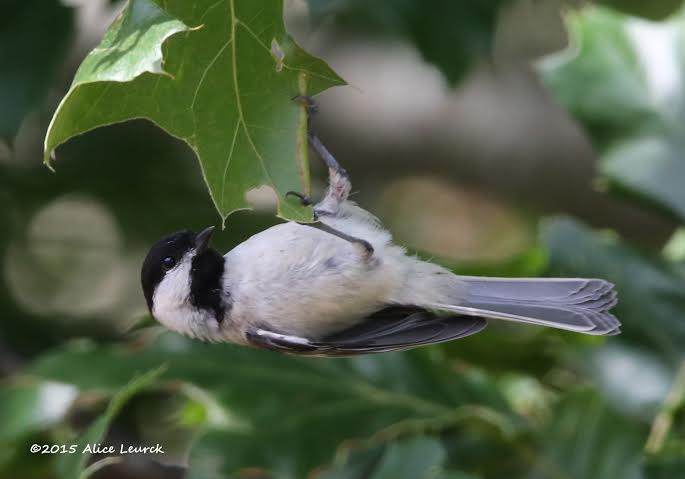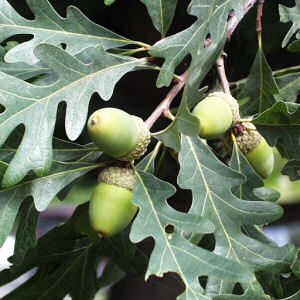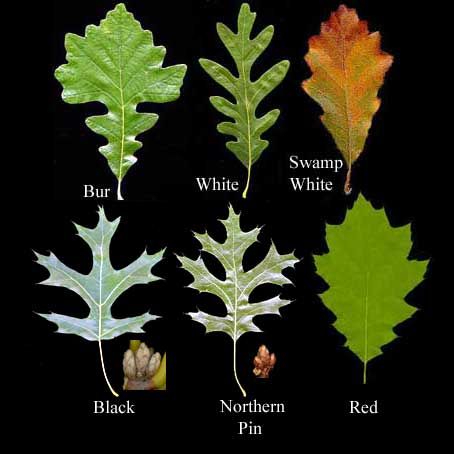
A tree is cut down in the backyard, a common occurrence in suburbia, and hardly anyone notices. Maybe the sound of the saw and the trucks hauling away the discarded wood earns a quick glance, and then life goes on. Unfortunately, life may not go on so well for the vast numbers of backyard wildlife that depends on the oak tree for their survival.

I am sure are all familiar with acorns. We get annoyed when they fall on our driveway and are just raked up when they get on our patio. But what most people are not aware of is how important they are to our local wildlife.
Gray squirrels, chipmunks, wild turkeys, crows, flying squirrels, rabbits, opossums, blue jays, woodpeckers, raccoons, wood ducks and yes, deer, need acorns to survive. At least 100 species rely on acorns. They have evolved with them throughout time. In autumn and winter the acorn is one of the most valuable food resources available for wildlife survival.
And yet as important as the acorn is, the most vital benefit of the oak tree to wildlife may go completely unnoticed and ignored.

In the book “Bringing Nature Home” Douglas Tallamy documented that oaks support 517 species of Lepidoptera. That means 517 species of butterflies and moths that need the tree to survive. Beautiful butterflies such as the Red-Spotted purple, Red Banded hairstreak and Horace’s Duskywing need to oaks to lay their eggs, not to mention the many more but no less beautiful moth species that can only endure if they have an oak tree available to bring forth their next generation.
In turn those diverse species of insects provide food to millions of migratory and nesting birds each year. The Warblers, Orioles , Vireos and yes, even your beloved backyard cardinals and chickadees, need those insects to feed their young. And just in case you think all is good because we have a few non-native trees in the backyard, think again.
While the oak tree attracts 517 species of valuable insects something like the lowly Bradford pear tree might attract maybe one or two species at best. This means that even though your backyard is lush and green and lovely to the eye , if native plants like the oaks are not present, your yard becomes a wasteland for wildlife .
If you are an experienced birder you are well aware of the value of the oak trees. Most likely you have heard of something called the “magic tree.” Simply put, the magic tree is a tree where you always seem to find the best birds when visiting the area and most of the time your enchanted tree winds up to be a species of Oak. Why? Because it provides exactly what the birds need precisely at the time our birds need them the most.
And then of course there is the housing shortage here in the Garden Stat , not only for us humans but for wildlife also. The Oak tree makes great nesting places for owls, hawks, woodpeckers and Nuthatches, just to name a few. The next time you have a woodpecker trying to make a home on your home, keeping up your oak trees may be something to think about .
The great conservationist John Muir once said, “When we try to pick out anything by itself, we find it hitched to everything else in the Universe.”
When it comes to our oak trees we now know how many of the creatures that we love and cherish depend on these wonderful trees. So save an oak when you can, plant new ones whenever and where ever you can, and tell your neighbors and friends that we need our backyard oaks to make sure we continue to live among thriving life forms essential to life as we know it.
Trees are as alive as much as any bird, butterfly or human for that matter. We just need to remind ourselves that our backyards are an integral part of a complex ecosystem , no less important than any nature center or State Forest .
We must take the wildlife that now depends on us into consideration when caring for our backyard wildlife habitats.

I so agree. I have a beautiful old oak in my backyard. Not only do oaks provide for our wildlife, but mine offers me a canopy of shade all summer under its glorious branches.
absolutely Lisa, they shade our homes in summer, block the cold winds in winter and absorb water to prevent flooding
I love this article, Don!! Thanks!!
My license plate says “Quercus!”
thanks DeeDee !